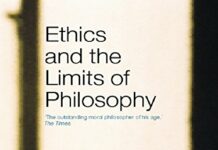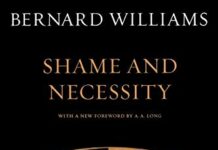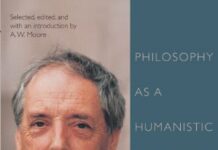
Ebook Info
- Published: 2010
- Number of pages: 343 pages
- Format: PDF
- File Size: 13.16 MB
- Authors: Bernard Williams
Description
What does it mean to be truthful? What role does truth play in our lives? What do we lose if we reject truthfulness? No philosopher is better suited to answer these questions than Bernard Williams. Writing with his characteristic combination of passion and elegant simplicity, he explores the value of truth and finds it to be both less and more than we might imagine. Modern culture exhibits two attitudes toward truth: suspicion of being deceived (no one wants to be fooled) and skepticism that objective truth exists at all (no one wants to be naive). This tension between a demand for truthfulness and the doubt that there is any truth to be found is not an abstract paradox. It has political consequences and signals a danger that our intellectual activities, particularly in the humanities, may tear themselves to pieces. Williams’s approach, in the tradition of Nietzsche’s genealogy, blends philosophy, history, and a fictional account of how the human concern with truth might have arisen. Without denying that we should worry about the contingency of much that we take for granted, he defends truth as an intellectual objective and a cultural value. He identifies two basic virtues of truth, Accuracy and Sincerity, the first of which aims at finding out the truth and the second at telling it. He describes different psychological and social forms that these virtues have taken and asks what ideas can make best sense of them today. Truth and Truthfulness presents a powerful challenge to the fashionable belief that truth has no value, but equally to the traditional faith that its value guarantees itself. Bernard Williams shows us that when we lose a sense of the value of truth, we lose a lot both politically and personally, and may well lose everything.
User’s Reviews
Reviews from Amazon users which were colected at the time this book was published on the website:
⭐This unique work on truth is a study of the paired concept of truth and truthfulness using a Nietzschian style of genealogy in moral philosophy. Williams utilised an unusual blend of analytic moral philosophy, classical study, and historical perspective which produced a work that is richly densed in arguments, concepts, and details. His prose is learnt and densed, but precise and elegant. This is a book that may need a second reading to sufficiently grasp Wlliams wealth of concepts.Williams suggest there is almost a dilemma existing between truth and truthfulness in the modern era. On the one hand, there is a demand for truthfulness as almost a reflex against deceptiveness while on the other hand, there is a suspicion whether there is such thing as truth. There seems to be a paradox in a demand for truthfulness while questioning if there is truth. His project is to stabilise the apparent opposition of the two concepts. In using the Nietzschian genealogical approach, a genealogy is a narrative that attempts to explain a cultural phenomenon by describing the way in which it came about, could have come about, or might be imagined to have come about. Williams uses a fictional genealogical narrative instead of real history which is an imagined developmental story that helps to explain concepts, values, or institutions by showing how they could have come about in a simplified environment containing human interest, capacities, and stories which is a “state of nature”. Hence this genealogy serves the aims of naturalism by explaining human culture as a part of nature. The naturalism in genealogy is not for promoting reductionism but to help provide explanations. In using a fictional genealogy, it helps to provide a “functional” explanation of the concept, reason, motivation or other aspect of human thought and culture. A functional explanation reveals the various possibilities of the concepts, reasons, and motivations in a culture.To examine the issue of truth and truthfulness, Williams offers a study of the two virtues of truth, sincerity and accuracy. Sincerity is critical to truthfulness because it is a Grician cooperative principle in communication which is the most fundamental principle that makes communication works. But any social system does not only consider maximal cooperation in communication. There are other various considerations to limit how much information is to be shared between parties due to various considerations. Sincerity bears on trustworthiness, and the framework of trustworthiness varies from time to time and culture to culture. The cultural variation of values requires real history in genealogy over mere fictional genealogy to bring in real cultural determination of sincerity and trustworthiness.With regard to the notion of accuracy, it is more than the capacity to acquire and communicate information and to know how to make wise “investigative investments”, I.e., strategic decision on what information and source that are worth collecting. Accuracy relates to the aim of acquiring truths which involves two aspects. The first one is the investigator’s attitude to pursue truths and to avoid wishful thinking, self deception and fantasy. The second one involves the investigator’s methods being actually reliable to collect truths.Included in this work is a study of the seminal work of the scientific approach to record history by Thucydides and Herodotus. The discussion involves Thucydides’ introduction of historical time to provide a temporal structure of the past events to be separated by mythical accounts though both together are the real historical genealogy of a given culture. Also included in this rich work is the truth virtue of “authenticity” featured in Rousseau and Diderot. They offer an account of conflicting human dispositions and motivations to be authentic, which are to be steadied by society, life experiences, and interaction with people. For application of Williams discussion of truth and truthfulness, the work also shows how they apply to liberalism in politics. Truthfulness is expected of government because it is charged with exercising power to provide security for its people and to avoid tyranny from improper use of power. Another way in which truthfulness is important because it pertains to the liberal institution of free speech. Free speech in the market place of ideas should be moderated by sincerity and accuracy to insure the quality of the information exchanged.Overall this last work of Williams covers so much ground with so much depth that it requires work and focus from the reader but with enlightened reward at the end.
⭐Published in 2002, this was to be Bernard Williams’s last book. The concept of Truth has had a rough time since Rorty and company have done their best to bring it in discredit. The dominant trend has been to question the validity of any universal truth and to render everything relative. Your truth is as good as mine. Or alternatively, since truth is not obtainable one should rather seek what is workable. We speak of a giraffe “because it suits our purposes to do so,” as Rorty says in Philosophy and Social Hope. We construct the world around us according to our needs and wishes. Knowledge and truth are no more than subjective features of our daily lives. Anything goes… This is, or rather was, the fashionable tenor in academia. Since the first decennium of this century, voices have been raised against this view and in defence of a more commonsensical understanding of truth and truthfulness. “How did so many contemporary scholars come to be convinced of a doctrine as radical and as counterintuitive as equal validity?” asks Paul Boghossian in his 2006 Fear of Knowledge. “The work of Richard Rorty provides striking examples of what in this respect might be described as running on empty,” as Williams puts it (p. 59). Consequently, Williams doesn’t believe there is such a thing as a history of the concept of truth. It has always and everywhere been the same. “The inquiry, then, is rather into human concerns with the truth” (p. 61).Williams traces his genealogy with Nietzsche as guiding-star. Contrary to received knowledge, Nietzsche was no enemy of truth; “there are facts to be respected” and “there are such truths” (p. 16). Williams himself stresses the double-edged character of the Enlightenment’s relation to truth. While he acknowledges the potentially destructive capacities of the Enlightenment, he nevertheless cherishes its concern for transparency and truthfulness (p. 231). Accuracy and sincerity are two key concepts in his pursuit of the virtues of truth.Delving into history, psychology, and politics as well as philosophy, TRUTH AND TRUTHFULNESS is a triumph of erudition and eloquence. He takes into account thinkers ranging from Aquinas to Diderot, from Kant to MacIntyre and many others, including Herodotus, Thucydides and Hayden White. There is also a useful five-page bibliography. The only dissonance is indeed the presence of untranslated Greek quotations in the Endnote, leaving ordinary mortals out of the picture.Sometimes sharp, funny, and witty, sometimes demanding – this is a brilliant book only a professional philosopher would venture to criticize. A penetrating inquiry, destined to exert a lasting impact.
⭐Williams challenges popular notions of relativism – that truth is merely a cultural and historical creation. Williams asks us to consider what truth means if it’s very definition is debased or devalued. Is this notion of an exact and right aim or value something we can live without? What value are our goals of human solidarity, human dignity for all, of our attempts not to be cruel, if the very foundation of what we stand these moral values on is pulled away?
⭐A supremely clear analysis of the various contexts that allow us to talk of truth and truthfulness. Admirably clear and powerful prose.
Keywords
Free Download Truth and Truthfulness: An Essay in Genealogy in PDF format
Truth and Truthfulness: An Essay in Genealogy PDF Free Download
Download Truth and Truthfulness: An Essay in Genealogy 2010 PDF Free
Truth and Truthfulness: An Essay in Genealogy 2010 PDF Free Download
Download Truth and Truthfulness: An Essay in Genealogy PDF
Free Download Ebook Truth and Truthfulness: An Essay in Genealogy





